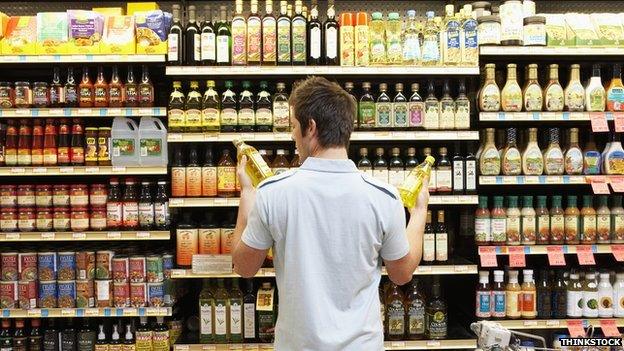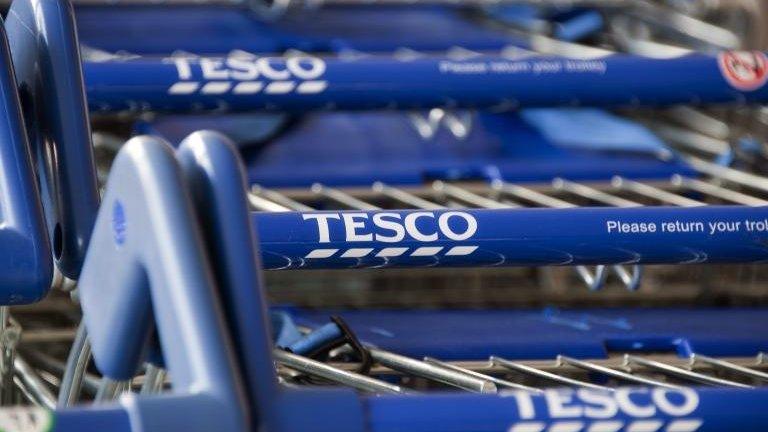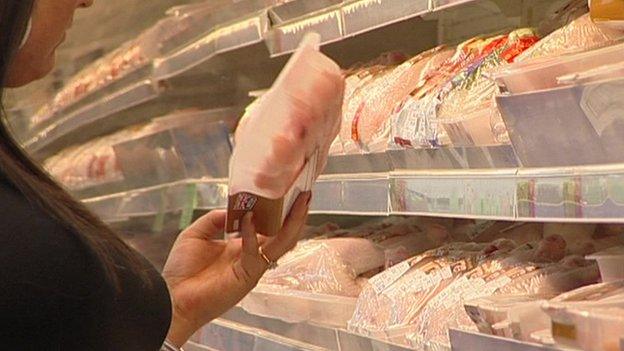Food supply companies at risk of collapse, says report
- Published

More than 100 food suppliers could be forced out of business as supermarkets cut prices in an effort to keep their customers, according to a new report.
There are more companies in financial distress in this sector than in any other, according to insolvency specialists Begbies Traynor.
The number of food firms in "significant distress" nearly doubled in the last three months of 2014.
The food retail industry itself is also showing signs of financial problems.
The report says that about 4,550 food-selling businesses are currently struggling, compared to 2,878 a year ago. The number in significant distress rose from 733 in the last quarter of 2013 to 1,410 in the last quarter of 2014.
'Pay to stay'
The rise in financial difficulty is more marked for smaller companies. Small food retailers in distress during the final quarter of last year rose 61% to 4,388, while small manufacturers of food and drink showed a 113% rise to 1,240.
Part of the pressure on food makers comes from supply agreements with big buyers, such as supermarkets, which can involve large discounts, slow payments or demands for rebates.
Last month Newsnight exposed the use of controversial "pay-to-stay" demands made by Premier Foods to its suppliers. Premier later said its arrangement had been "misunderstood and misinterpreted" but it would "simplify" its practice.
"Unless the supermarkets start treating their suppliers more fairly and find longer term solutions to their cost cutting exercise, we expect that more than 100 of these 1410 significantly distressed food and beverage suppliers will fall into administration before the year is up," said Julie Palmer, a partner at Begbies Traynor.
Overseas goods
"Worryingly, with 3.6 million people employed in the UK food supply chain, the economic and political risks associated with the current price war are now reaching boiling point ahead of May's election."
"Adding to their misery, the UK's food producers and suppliers have failed to see any benefit from the rise in popularity of the German discounters Aldi and Lidl, since much of their canned and packaged stock is sourced from overseas."
Begbies Traynor used financial data to probe firms in the sector that have traded for more than a year. It labels a company as being in "significant distress" if it has a county court judgement against it of less than £5,000, or if it has a poor credit score.
- Published8 January 2015

- Published5 December 2014

- Published17 December 2014
